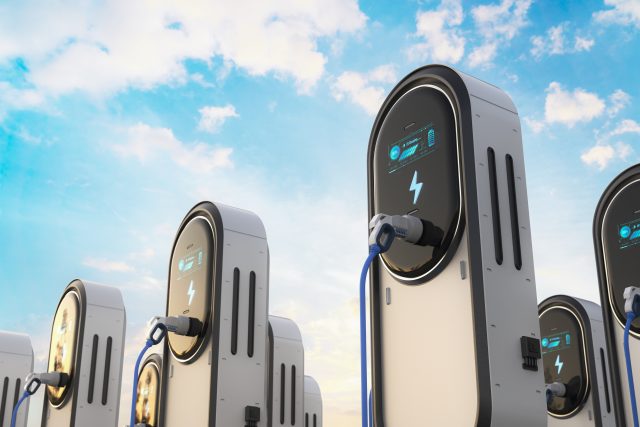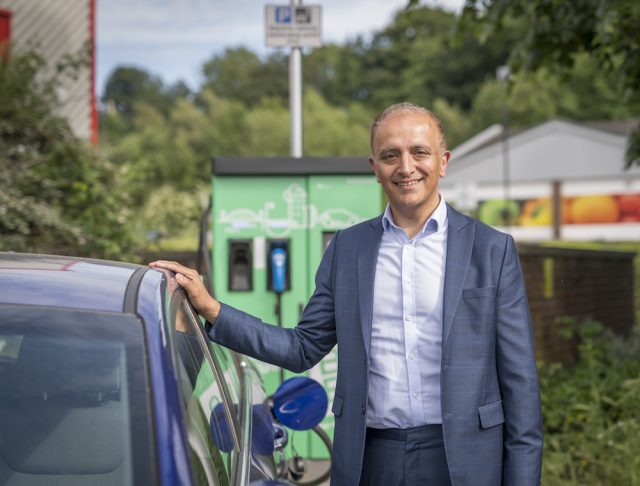This website uses cookies so that we can provide you with the best user experience possible. Cookie information is stored in your browser and performs functions such as recognising you when you return to our website and helping our team to understand which sections of the website you find most interesting and useful.
Could electric vehicle charging save the on-trade?
The on-trade has been hit hard by a perfect storm of the cost of living crisis, the pandemic, and changes to consumer behaviour. But an unexpected income stream could help get things back on track, db reports.

Imagine someone walked into your pub or restaurant and said that you could earn several thousand pounds extra a year without any investment at all. Obviously any restaurateur or landlord would bite their hand off.
This is exactly what is being offered by charge point operators for electric vehicles (EV).
At present, there is a public e-charging revolution occurring in the UK as the country transitions to EVs. By 2030, new car sales of internal combustion engine vehicles will be banned, and there will be millions of new and used EVs on Britain’s roads.
With 40% of residents in any locality not lucky enough to have off-street parking, there will be an increasing reliance on public e-charging facilities, as drivers move to either hybrid or fully electric cars, called battery-electric vehicles (BEV).
This is where the opportunity lies for the on-trade: not only can they get direct revenue from the chargers themselves, but they will also drive new custom into their venues, as drivers look to eat or drink while they top-up their batteries.

According to Asif Ghafoor, the CEO of charge point operator Be.EV, hospitality firms could earn a significant amount of cash per “ultra-rapid charger”. These are the chargers than can deliver 165 miles to a battery in 20 minutes.
Thousands of pounds
Ghafour told the drinks business that for the ultra-rapid chargers his firm installs, landlords can expect to earn a few thousand pounds annually for every charging bay they have on their property.
He said: “This money comes directly from Be.EV as we pay rent for each space we occupy with our chargers. However, we don’t want landlords to miss out on their share as more and more EV drivers take to the road, so we offer a profit share on top of what we pay for the space.
“Any pub owners that are invested in the success of their chargers can be rewarded for promoting the site, and getting EV drivers to charge there.”
Ghafoor said that the hospitality sector had an opportunity to transform empty car parking spaces into “thousands – or potentially tens of thousands – of pounds of extra revenue every year without any investment at all”.
He continued that the installation from the chargers also had a secondary benefit for the on-trade, as the products would increase the overall site value “so if a landlord does decide to move on, it can help bump up the sale price”.
Fruit machines
A useful analogy was provided by Ghafoor that would make sense to pub landlords: “It’s like a landlord installing a fruit machine – it’s a guaranteed additional revenue stream for little- to no-cost”.
He highlighted the work that the company had undertaken with brewer and operator JW Lees, where it has undertaken a £1.8m deal to upgrade or install ultra-rapid chargers at 22 sites across the North West of England.
“We want to make the process as easy as possible for our partners,” he continued, “whilst at the same time driving more customers to their locations as a result of their EV charging offering.”
Be.EV and other charge point operators often handle all of the planning, offer advice of how many chargers can be installed, and handle the whole installation of the scheme. In addition, the firms also often, like Be.EV, provide on-going maintenance of the asset, like those fruit machines.
“JW Lees wouldn’t expect us to know how to run a pub, so why should we expect them to know how to fix our chargers?” Ghafoor explained.
Planning your project
So how long would it take to get one of these schemes up and running?
According to Ghafoor, it would probably take around a year from first contact to installed chargers.
“Getting deals signed and the process underway can happen relatively quickly, but we’re bound by planning rules and the district network operators (DNOs) once site development starts to happen,” he said.
Depending on the complexity, the first stage can take up to six months, as title checks, legal documents to solicitors and point of power applications are made.
He added: “Once all the paperwork has been sorted, we begin the installation process. Again, depending on how many chargers we’re looking to install, the timings for this can vary. We typically anticipate this stage to take around three to six months.”
Ultimately, it would appear the best way to drive new revenue for the on-trade could well be from driving itself.
Related news

